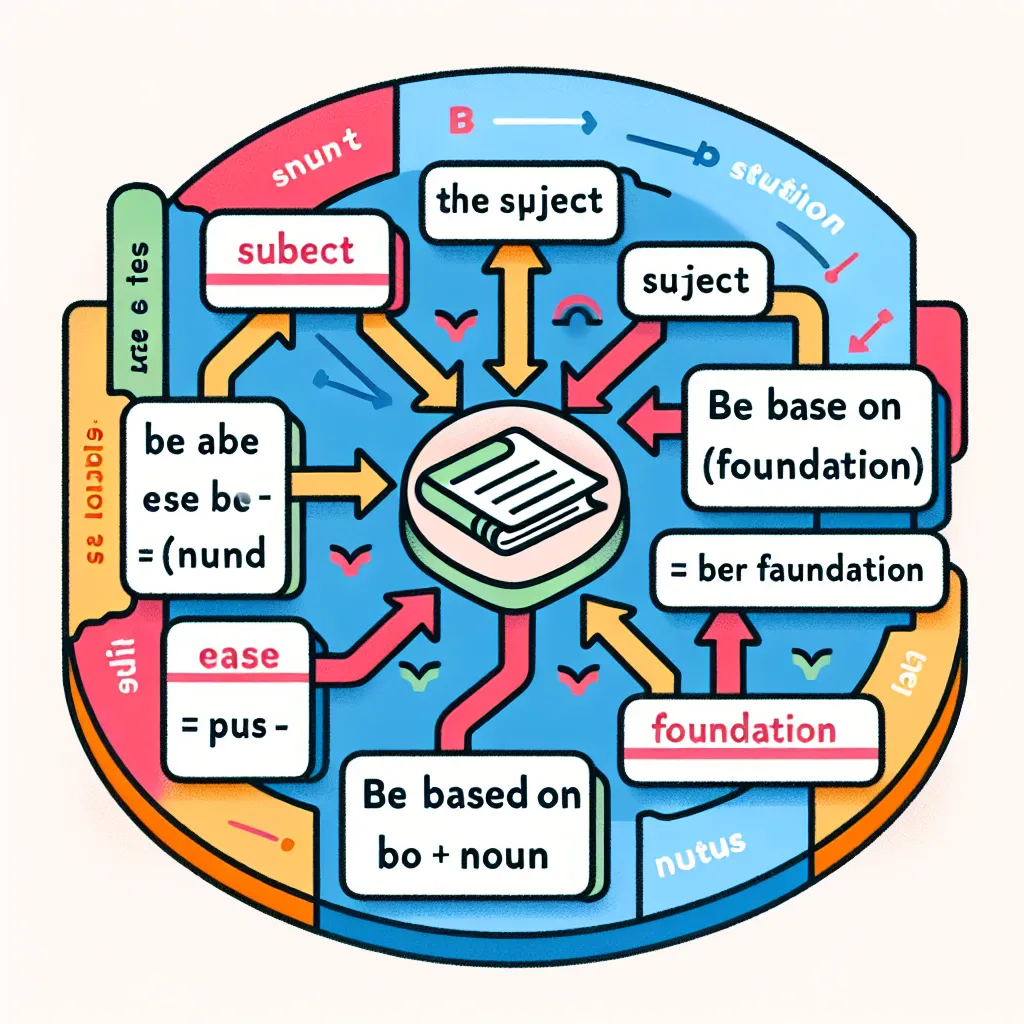The phrase “be based on + noun” is a common structure in English that frequently appears in IELTS exams. Understanding and using this phrase correctly can significantly enhance your performance in both the Writing and Speaking sections of the test. Let’s explore its meaning, usage, and how to apply it effectively in your IELTS preparation.
Understanding “Be Based On + Noun”
The structure “be based on + noun” is used to indicate that something is derived from or has its foundation in a particular source or idea. This phrase is versatile and can be applied in various contexts, making it valuable for IELTS candidates aiming to express complex ideas clearly and concisely.
Examples:
- The research paper is based on recent scientific discoveries.
- Her opinion is based on personal experience.
- The company’s strategy is based on market trends.
- The film is based on a true story.
- The new policy is based on extensive public consultation.
In each of these examples, the subject (research paper, opinion, strategy, film, policy) has its foundation or origin in the noun that follows “based on.”

Grammar and Structure
The basic structure of this phrase is:
[Subject] + [form of “to be”] + based on + [noun/noun phrase]
It’s important to note that the verb “to be” should agree with the subject in tense and number. For instance:
- Singular present: The theory is based on scientific evidence.
- Plural present: These conclusions are based on multiple studies.
- Singular past: The decision was based on careful consideration.
- Plural past: The recommendations were based on expert opinions.
Using “Be Based On” in IELTS Writing Task 2
In IELTS Writing Task 2, using “be based on” can help you articulate your arguments more effectively. Here’s an example of how you might use it in an essay:
Topic: Some people believe that success in life is due to hard work and determination, while others believe it is due to other factors.
Sample paragraph:
While success can be attributed to various factors, I believe that it is primarily based on hard work and determination. Many successful individuals’ stories are based on years of persistent effort and unwavering commitment to their goals. For instance, the achievements of renowned entrepreneurs are often based on their ability to overcome numerous obstacles through sheer perseverance. However, it’s important to acknowledge that success can also be based on other elements such as opportunity and innate talent, which can complement one’s hard work.
In this paragraph, the phrase “be based on” is used multiple times to connect ideas and provide a clear structure to the argument. It helps to establish the foundation of success (hard work and determination) while also acknowledging other contributing factors.
Applying “Be Based On” in Different IELTS Sections
IELTS Writing Task 1
In Task 1, particularly when describing processes or explaining diagrams, “be based on” can be useful:
“The production process is based on a series of chemical reactions.”
“The city’s urban planning is based on a grid system, as shown in the diagram.”
IELTS Speaking
In the Speaking test, you can use this structure to express opinions or describe influences:
Examiner: What factors influence fashion trends in your country?
Candidate: I think fashion trends in my country are largely based on international influences. Many of our popular styles are based on what we see in American movies or Korean dramas. However, there’s also a growing trend of fashion based on traditional cultural elements, which is really interesting.
Advanced Usage for Higher Band Scores
To aim for higher band scores (7 and above), consider using more complex forms of this structure:
-
With passive voice:
“The conclusions drawn were based on extensive research conducted over several years.” -
In perfect tenses:
“The company’s success has been based on its innovative approach to customer service.” -
With modifiers:
“Their strategy is primarily based on market analysis and consumer feedback.” -
In comparative structures:
“Our approach is more based on practical experience than theoretical knowledge.”
Common Mistakes to Avoid
-
Incorrect preposition:
Incorrect: “The theory is based in scientific evidence.”
Correct: “The theory is based on scientific evidence.” -
Using “based off” instead of “based on”:
Incorrect: “The movie is based off the book.”
Correct: “The movie is based on the book.” -
Forgetting to use “be”:
Incorrect: “Their argument based on faulty logic.”
Correct: “Their argument is based on faulty logic.” -
Incorrect subject-verb agreement:
Incorrect: “The findings is based on recent studies.”
Correct: “The findings are based on recent studies.”
Conclusion
Mastering the use of “be based on + noun” can significantly enhance your IELTS performance. It allows you to express complex relationships between ideas concisely and clearly. Practice incorporating this structure into your writing and speaking, paying attention to context and grammatical accuracy. Remember, while it’s a useful phrase, avoid overusing it; variety in your language will also contribute to a higher band score.
For further practice, consider how you might use this structure in topics like environmental policies based on scientific research, educational systems based on traditional values, or economic strategies based on global trends. These are all common themes in IELTS tasks where “be based on” can be effectively employed.